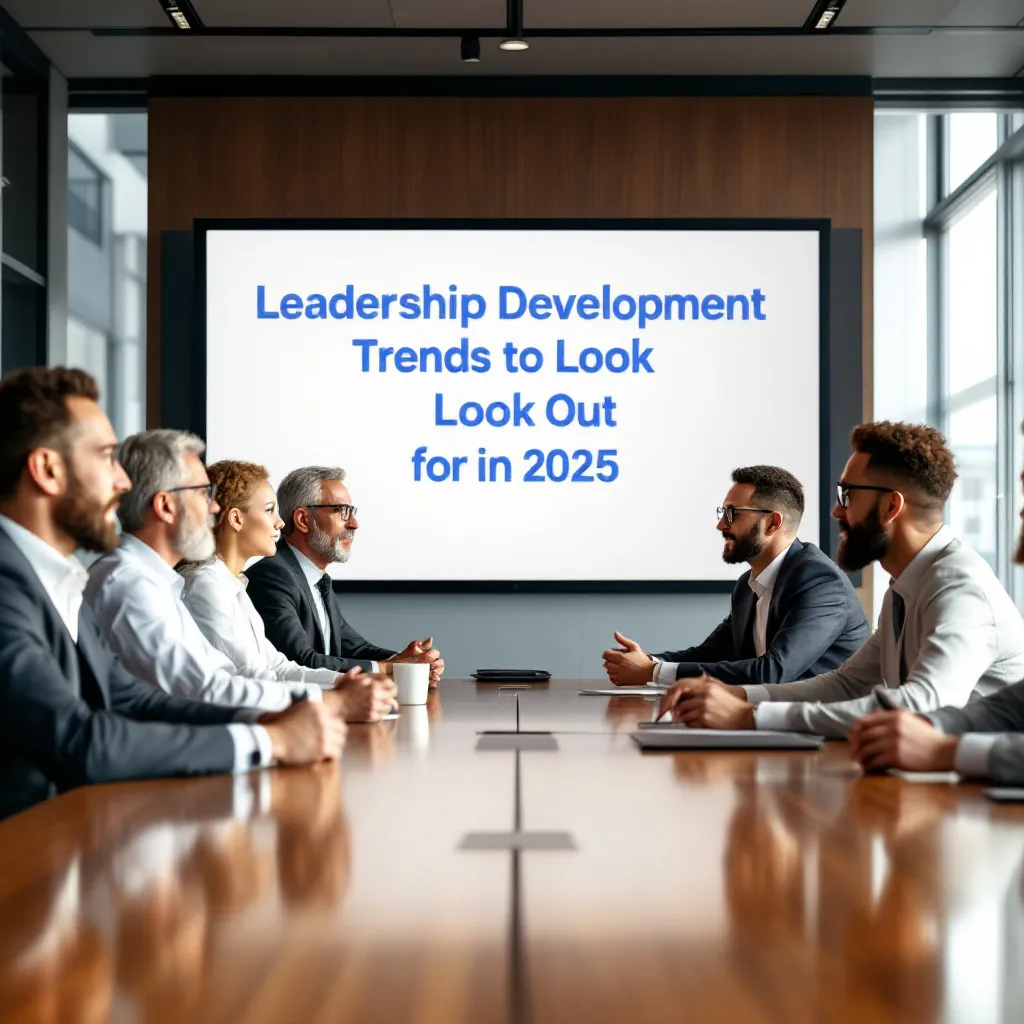Table of Contents
- Human-Centered Leadership Evolution
- Emotional Intelligence in Modern Leadership
- Self-Awareness and Personal Development
- Technology-Enhanced Leadership Development
- Personalized Learning Platforms
- Performance Management Tools
- Implementation and Coaching Models
- Experiential Learning Integration
- Team Coaching Approaches
- References
Human-Centered Leadership Evolution
As we near 2025, the leadership style we are shifting toward is more human-centered, with emotional intelligence and empathy replacing the autocratic-style leadership competencies of yesteryear(Korn Ferry). Why? Because traditional models of top-down leadership are under more pressure than ever to perform in our fast-moving and interconnected business world(Breakfast Leadership). Emotional intelligence and empathy are now considered necessary for good leaders. And you can’t be resilient and adaptable in today’s world without them. High-IQ leaders are no longer the gold standard.

Emotional Intelligence in Modern Leadership
Emotional intelligence is a critical differentiator for effective leadership. Current research shows a direct link between team performance and the success of organizations and the emotional intelligence of their leaders. We are increasingly coming to understand that how well leaders manage their own emotions, and the emotions of others is a key factor in “organizational health.” We also know now that the ability to connect with others in an emotionally intelligent way is not just something you either have or don’t have, like height. Rather, it is like a skill set. It can be learned and improved upon. Organizations can provide training to help leaders become more emotionally intelligent. However, the kinds of leaders that organizations want to have are the kinds of leaders that are naturally good at emotionally connecting with others.
Self-Awareness and Personal Development
The path to human-centered leadership starts with an intensified self-awareness and a commitment to continuous personal development. Today’s leaders use modern, sophisticated self-assessment tools and feedback mechanisms to help understand them better and shape their leadership style. This isn’t just old-fashioned “what’s your type?” psychology. These assessments help us understand our emotional patterns, cognitive biases, and everything that makes us tick (or not tick) in terms of predictable, understandable behavior. What was once the domain of mere technical skills and acquired knowledge in leadership is now more about the act of leading itself. And leading well — in an authentic way that inspires confidence and trust — is the endgame.
Technology-Enhanced Leadership Development
How organizations train and develop their leaders is changing—fast(Ibarra, H). Increasingly, they are turning to technology and digital solutions to create more adaptable and personalized programs. With this change comes an even more crucial element: organizations must ensure that these new leadership development frameworks provide meaningful and actionable outcomes. Transforming how organizations think about not just leadership but also the emergence of leaders is not easy. Still, it is technology’s potential promise—an increased pace in creation and, at its best, a greater personalization of content and process.

Personalized Learning Platforms
AI-powered personal learning clouds are transforming the traditional model of consuming leadership development. Yet, even as these platforms evolve and scour the internet for real-time intelligence to enhance their predictive capacities, they still need to understand better the user’s lifeworld to personalize experiences. Consequently, these AIs are outfitted with eco-sensors that pick up on implicit and explicit signals around the user. Being eco-smart in this way allows the platform to become better at forecasting instructional moments(Ibarra, H). Forecasting well positions the platform to become an ambient tutor, finding the user not on their good days (when they signal they’re ready to learn) but also on their bad days (when they might need leadership development the most). Such ambient tutoring is one way to understand the aspirational goal of AI uplift.
Performance Management Tools
Performance management in the digital age has become all about leadership. Performance management began as a way to help people in organizations do their jobs more effectively and to allow organizations to measure how well they were doing in achieving their stated goals. In a workplace where 70 percent of the results come from the actions of leaders, as research shows, it became clear that the most powerful opportunity to improve performance was by making leaders more effective. For the past 15 years, digital performance management tools have been tracking the effectiveness of leadership in a more precise way than ever(Ibarra, H). These new Earth-bound satellites measure the impact of asteroids far above with unprecedented detail. From their high in the sky, they also see the big picture. The latest tools for measuring leadership effectiveness are powered by artificial intelligence and machine learning.
Implementation and Coaching Models
The contemporary business world is shifting quickly, and leaders need to develop themselves in such a way that they can keep pace. An implementation framework must be in place(AIHR). Leadership coaches must understand who their coachees are, how their business is structured, and how it operates. They must also have a solid working knowledge of what business structures and operations will likely look like. The business secure coachees are more likely to work with a blended learning approach that amounts to “virtual immersion” in some form—using a nice combination of in-person and virtual sessions, personal development assignments, and mobilizing ongoing support throughout the coachee’s organization.
Experiential Learning Integration
Programs that develop effective leaders have adopted experiential learning as a foundational feature. Rather than relying on theoretical knowledge alone, these programs now seek to challenge leaders in real-world situations. After all, the intersection of leadership and business was where experiential learning first gained traction. And it arose from a basic observation: that direct experience is more likely to lead to any number of six virtues associated with good leadership—namely, decision-making skills, strategic thinking, emotional intelligence, or whatever we might call the ability to read people and situations.
Team Coaching Approaches
Current team coaching methods emphasize the significance of a collaborative atmosphere, within which learning can occur, and comprehensive feedback systems. Providing clear, constructive feedback that offers a good perspective on the individual’s performance is an essential requirement for any coaching program to be effective; that is a well-known fact. However, in team coaching, this requirement becomes even more critical because, in teams, the interdependence of individuals is a given. In its various versions, the GROW model is the most used framework for structuring coaching conversations in individual and team coaching contexts. “GROW” stands for “Goals,” “Reality,” “Options,” and “Way Forward.”
About the Author: Clive Hays is an Employee Engagement Consultant at CLOVER ERA. With over 30 years experience in helping organizations transform improve their outcomes and improve working environments.
References
[1] Korn Ferry. (n.d.). “Leadership Development Trends to Develop a Future-Forward Mindset.” Retrieved from https://www.kornferry.com/insights/featured-topics/leadership/top-5-leadership-trends-2025
[2] Breakfast Leadership. (n.d.). “The leadership landscape in 2025 will be shaped by various emerging trends that reflect the evolving needs and expectations of the modern workforce and society.” Retrieved from https://www.breakfastleadership.com/blog/emerging-leadership-trends-for-2025
[3] Ibarra, H., & Scoular, A. (2019). “The Future of Leadership Development.” Harvard Business Review. Retrieved from https://hbr.org/2019/03/the-future-of-leadership-development
[4] AIHR. (n.d.). “Nondirective/ facilitative coaching.” Retrieved from https://www.aihr.com/blog/coaching-models/

